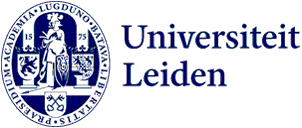
Archaeologists in action: stories from the field
During the summer, staff and students of the Faculty of Archaeology travel to all parts of the world, initiating or joining fieldwork projects. Read some of our students' stories here!
Barbados
Mylou van Westerveld (she/her), Bachelor's student
'We excavated at Maycock's Bay in Northern Barbados, the site was super interesting as it contained prehistoric material and the ruins of a colonial fort! We divided the team up in two and got to experience both prehistoric and historic archaeology in one project!
We found some really cool artefacts, a super well preserved prehistoric fishing hook, prehistoric pottery figurines, lots of Delftware ('Delfts Blauw'), a tiny cannon and a cannonball!
Our work days were eight hours long, but during the midday break we got to eat local cuisine and swim in the ocean (that was just a few minutes’ walk away). On the weekends we explored all over the tiny island and got to see the beautiful nature and culture that Barbados as to offer!'
The Maycock's Bay 2022 project is supervised by our Faculty's Dr. Maaike the Waal.

Peru
Marloes Attema (she/her), Bachelor's student
'At the Huari-Ancash site we wake up with sunrise at 7am and head to the site at 8am. To get from our camping place to site, we have to walk down a very steep hill through tons of bushes.
We are excavating a funeral site of the Recuay culture in the Northern highlands of Peru. To honor the ancestors and Paccha Mama, we started with a local ritual before we started excavating.
The chullpas (gravetombs) we are excavating are mostly collapsed and raided by the grave robbers. But we have found already some exciting and mysterious finds!'

Gibraltar
Elliot Steixner (they/them), Bachelor's student
'The Gorhams cave complex in which we were excavating is one of the last Neanderthal sites in Europe! The site is on a sand dune, so we had to spend a lot of time securing the slope so we could excavate safely. We excavated two parts of the site. One part was a chamber at the back of Vanguard cave that was discovered in 2021. It was plugged up by sediment 50,000 years ago. All the sediment we excavated was wet-sieved as well. Although we didn’t find Neanderthal remains this year, we found a lot of animal bones, some of which were burned.
We also did find processing at the field center of the Gibraltar National Museum. We picked through the sieved sediment under the magnifying glass to find even the smallest bones, for example mice or small birds! This can tell us a lot about the environment the Neanderthals lived in.'

Greece
Robbert van de Winkel (he/him) Bachelor's student
Currently the HMC-project in Greece is in full swing! A team of students and staff are researching the Medieval and post-Medieval hinterland of Chalkida. The city has ancient roots, it is located on the right bank of the narrow strait between the island of Evia and mainland Greece. Student Robbert shares his experiences:
'We start at the site at 6:00. The travel to the site follows an adventurous trail since it is located on a hilltop. It can be accessed by a steep road full of holes and rocks. We have to take the heavy equipment up this hill. But the view and the site more than make up for it! The early morning work makes it possible to see some of the local wild life. We have seen a herd a goats wandering around on the site and some bunnies hopping through the bushes. A few days ago, we had to survey in the scorching sun. It was 40 degrees Celsius. However, we have already made some amazing unexpected discoveries which makes it all worthwhile.'

Cyprus
Vincent Spierings (he/him), Bachelor's student
'At the Chalcolithic site of Palloures, we start at 6 the morning, to make sure we get out of the field before the Cypriot sun makes it too hot. Around the field, people are digging new trenches, finding floors and defining walls. In between working, we enjoy a good slice of watermelon! In the afternoon the whole team comes together to wash pottery.'

Jordan
Dion Torn (he/him), Bachelor's student
'On my first archaeological excavation I joined the Jebel Qurma Archaeological Landscape Project in Jordan's eastern desert. During this project we researched the many burial cairns and associated structures dotted all over this landscape. We also investigated many different rock art panels which was really exciting. It allows you to stand face to face with ancient scenes that befit the landscape perfectly. After a day of work – which starts at 05:30 – it was time to relax and enjoy the beautiful desert view. It was hard work in this hot desert environment, but definitely most rewarding and enjoyable!'

